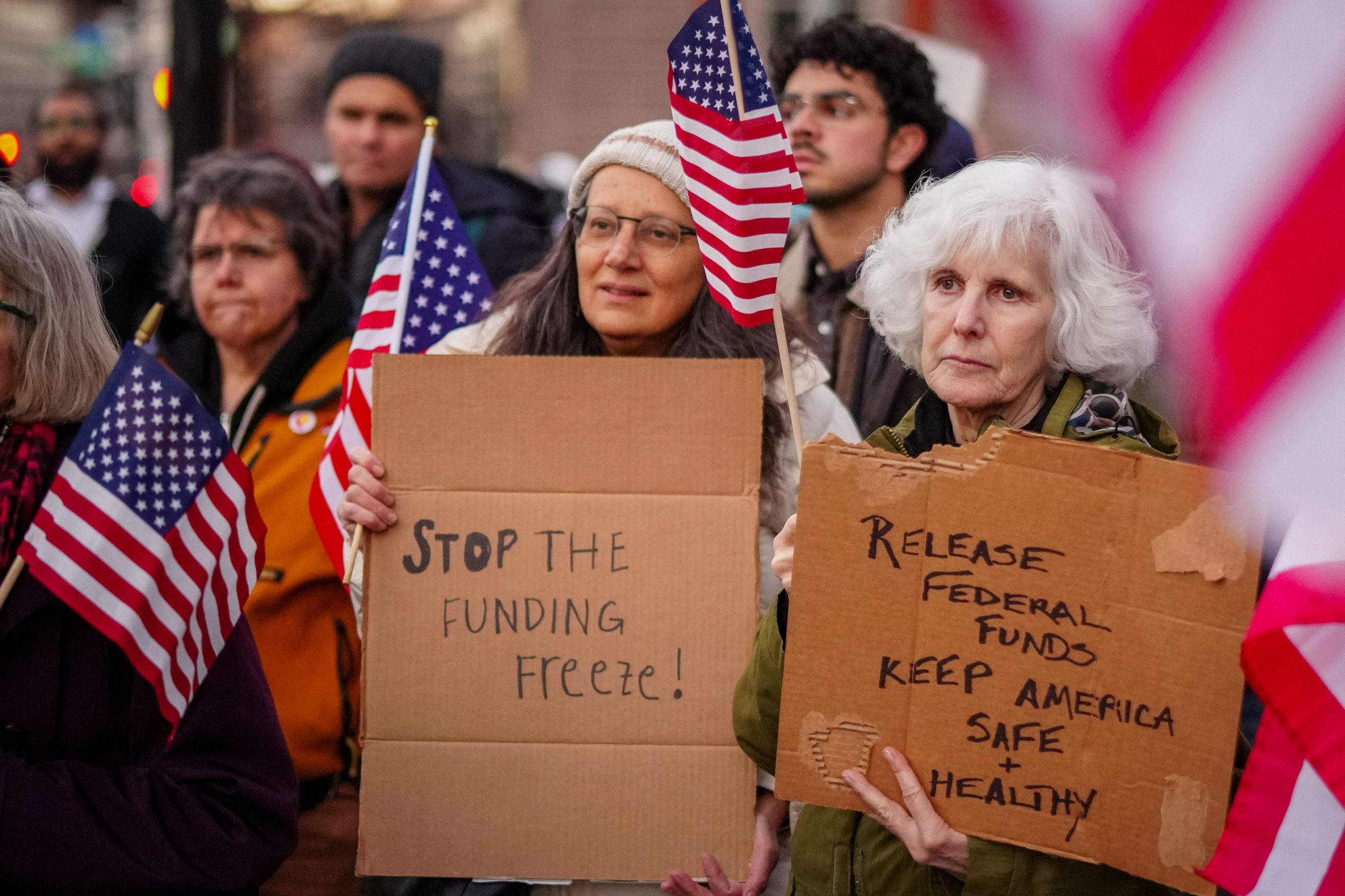U.S. District Judge Loren AliKhan in Washington, D.C., temporarily blocked the implementation of President Donald Trump’s federal funding freeze order for grants, loans, and other financial assistance, which analysts estimate amount to trillions of dollars.
The extraordinary ruling, issued just minutes before the White House order was set to take effect, is intended to provide time for a legal review, scheduled for early next week, following U.S.-wide complaints over the order even and a lawsuit filed by a coalition of grant recipients.
Trump’s federal funding freeze is separate from and in addition to the freeze on U.S. foreign aid, and aligns with his campaign promise to curb unnecessary government spending and his recent push to rescind grants and funds tied to diversity, equity, and inclusion, as well as environmental initiatives, but appears to be lacking in critical details.
The directive has created widespread disruption at state levels, with officials reportedly locked out of funding portals for Medicaid, emergency aid, and low-income education and nutrition services, according to The Wall Street Journal.
Meanwhile, universities that receive federal funding for research programs began reporting as early as last week that their accounts had been “frozen until further notice.”
In response, the White House attempted to clarify that the freeze would not affect Social Security, Medicare, or welfare benefits. However, hospitals and doctors told The Wall Street Journal they are still unable to access federal funding.
Defending the move, the White House press secretary stated, “It is the responsibility of this president and this administration to be good stewards of taxpayer dollars,” adding that the temporary pause was intended to allow agencies time to review spending priorities.
Government officials, lawmakers, nonprofits, and other stakeholders continue to express concern over the lack of clarity on which programs will be halted, and frustration over the move is increasingly bi-partisan.



